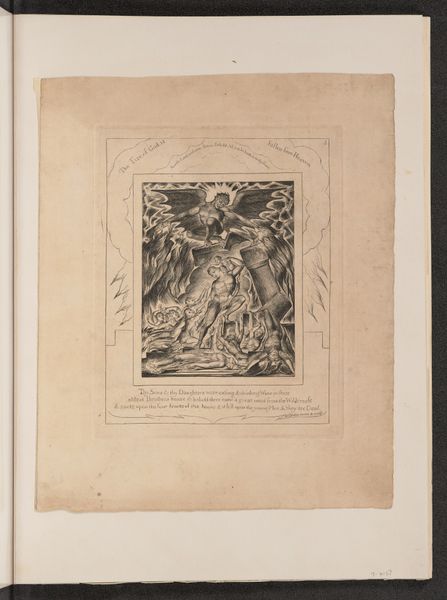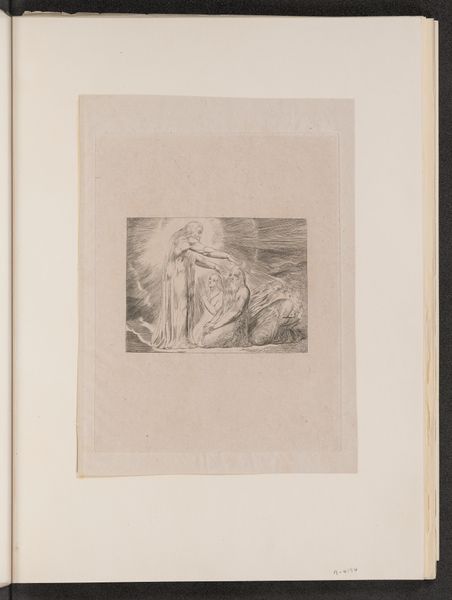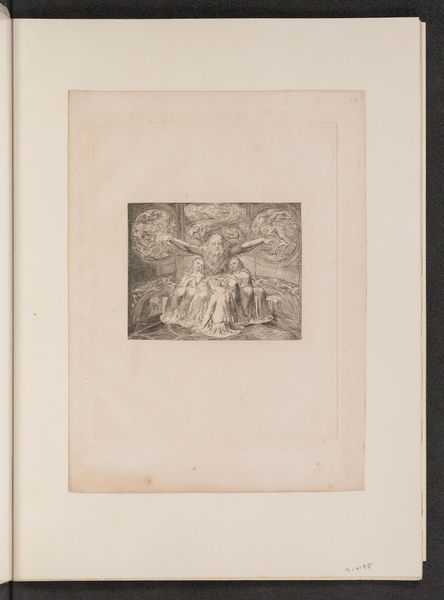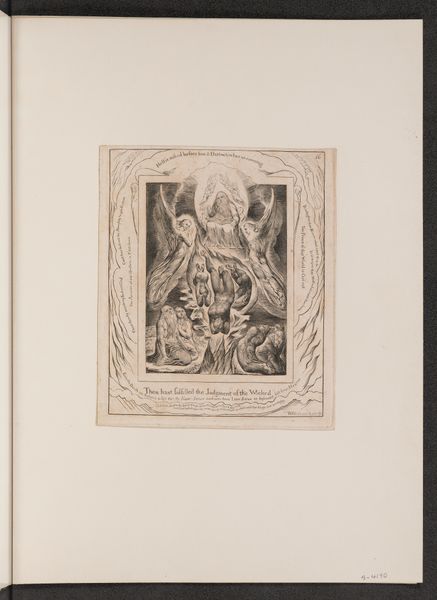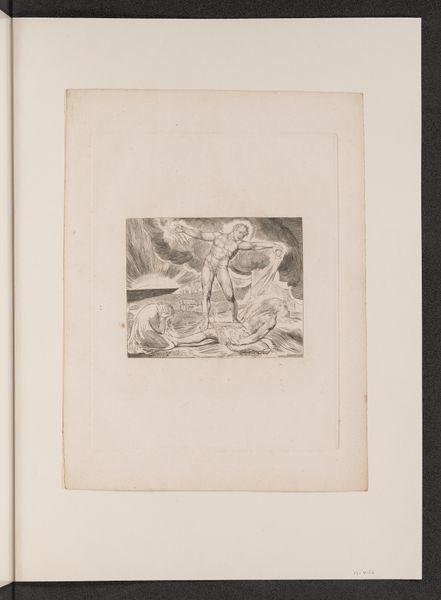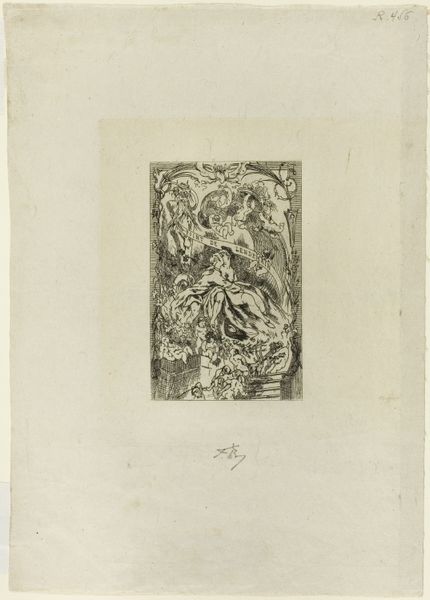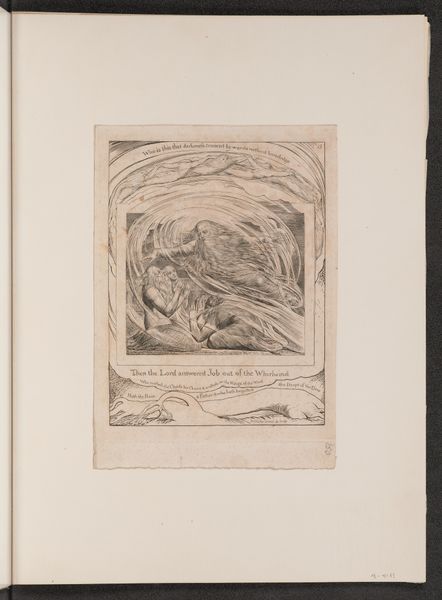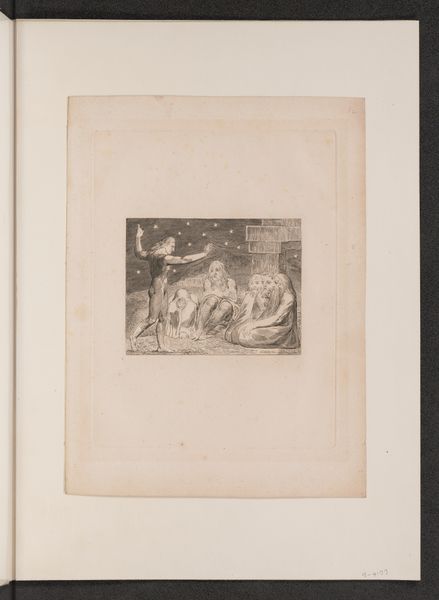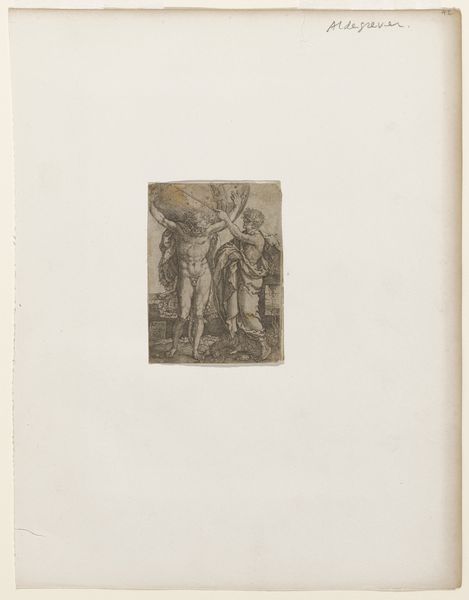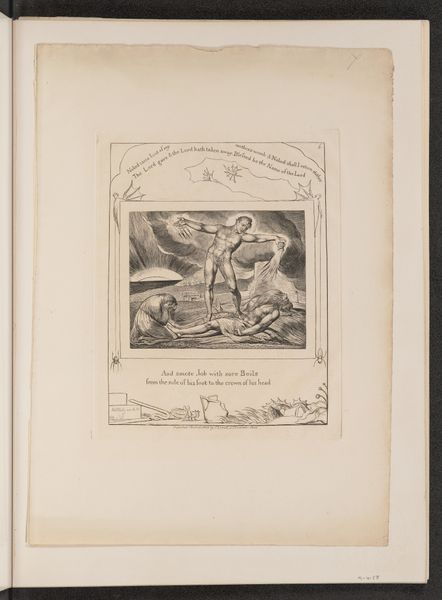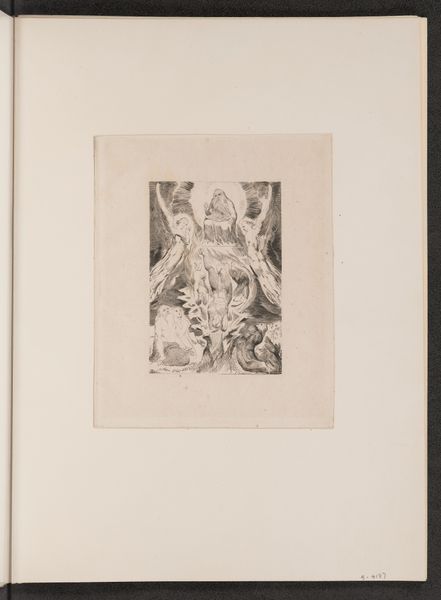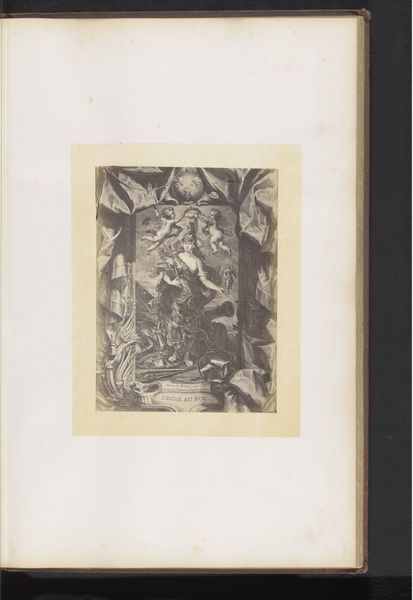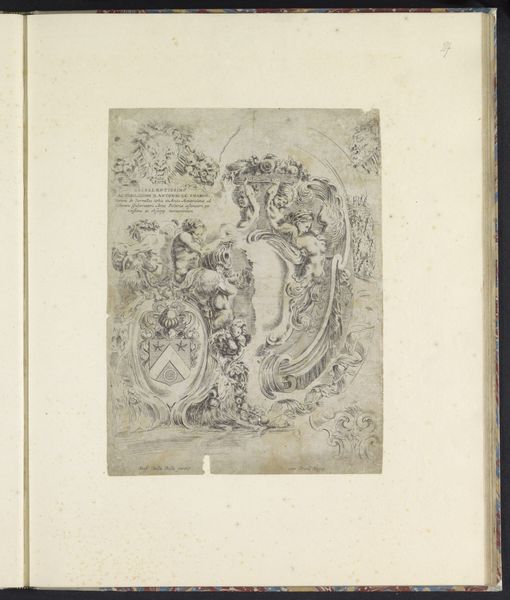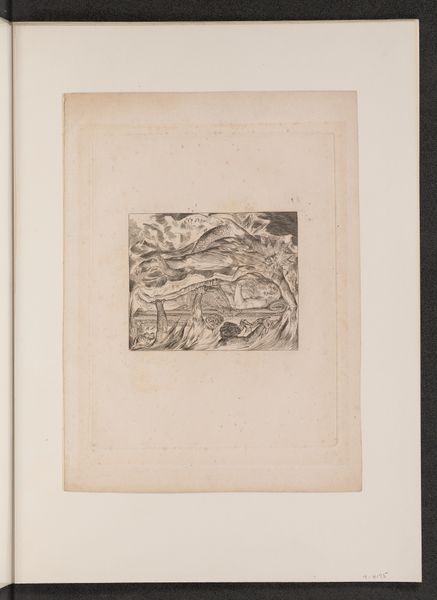
drawing, print, etching, paper, ink, engraving
#
portrait
#
drawing
#
allegory
#
narrative-art
#
ink paper printed
# print
#
etching
#
sketch book
#
figuration
#
paper
#
form
#
ink
#
romanticism
#
pen-ink sketch
#
line
#
history-painting
#
engraving
Copyright: National Gallery of Art: CC0 1.0
William Blake made this intaglio print, “Job’s Sons and Daughters Overwhelmed by Satan,” using engraving and etching techniques. These methods involve physically manipulating a metal plate – usually copper – to create recessed lines that hold ink. Blake would have used sharp tools to directly engrave some lines, while others were likely etched using acid. The resulting fine network of lines gives the print its dramatic tonal range, from the bright, exposed figures to the shadowy depths of the scene. This precise, laborious process was crucial to achieving the image’s emotional intensity. Blake's choice of printmaking was no accident. In his era, printmaking offered a means of disseminating images widely. It democratized art, challenging the dominance of unique, expensive paintings. Blake, deeply critical of social injustices, likely saw printmaking as a way to bring his visionary art to a broader audience. The very act of production, therefore, becomes part of the artwork's message. It reminds us that art is not just about aesthetics, but also about labor, access, and social change.
Comments
No comments
Be the first to comment and join the conversation on the ultimate creative platform.
